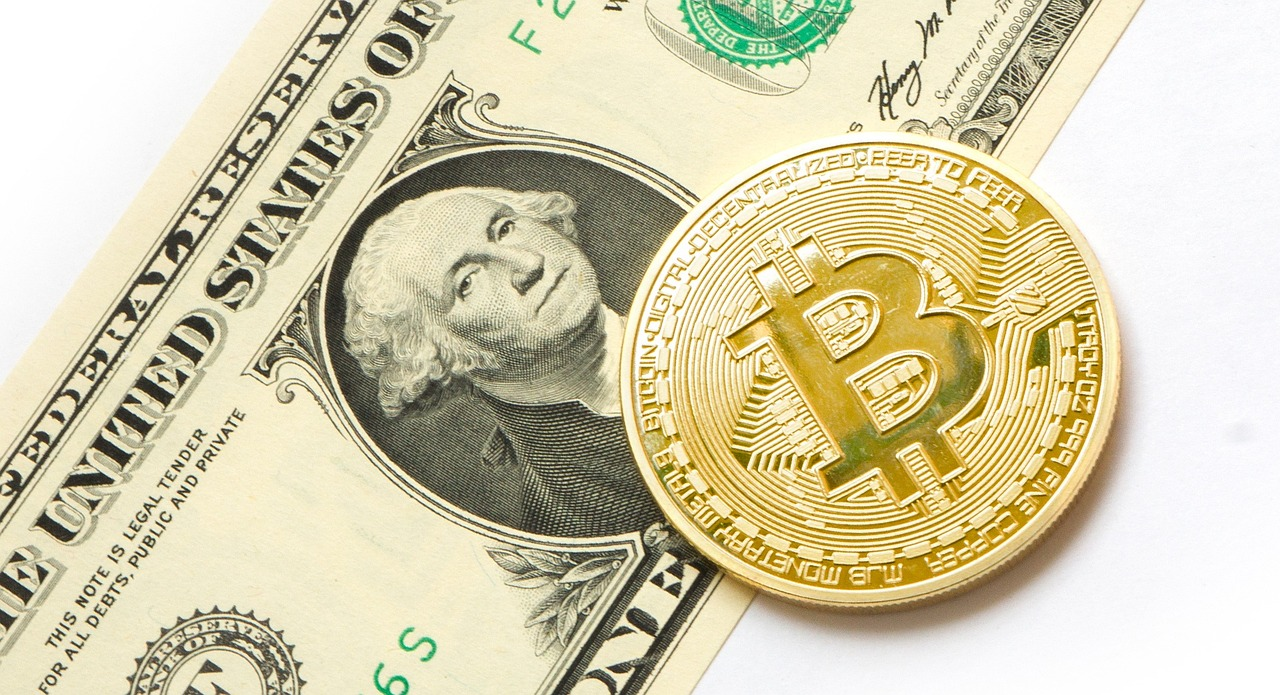Author: Lawyer Liu Zhengyao
Introduction
Recently, a case involving the exchange of virtual currency has attracted a lot of attention. The situation is that on July 16, the People's Court of Pudong New District in Shanghai announced a major illegal virtual currency exchange case that was adjudicated in March this year, with the amount involved reaching as high as 6.5 billion yuan! In this case, the parties involved used Tether (USDT) as an "intermediary" to help people exchange renminbi for foreign currency.
Why have judicial authorities begun to frequently crack down on illegal foreign exchange cases involving virtual currencies in the past two years? The reason is not complicated: China implements a foreign exchange control system, allowing ordinary citizens to exchange only up to $50,000 per year. Want to exchange more? It's not impossible, but you need to queue at the bank, fill out a lot of forms, and explain the purpose.
The emergence of virtual currencies can objectively break the domestic foreign exchange control system, creating space for illegal arbitrage. Naturally, judicial authorities will pay attention to and crack down on the use of virtual currencies for foreign exchange trading and illegal currency exchange. As a web3 lawyer, I will discuss the logical structure of the crime of illegal operation involving virtual currencies and provide defense suggestions within the legal framework of mainland China, hoping to benefit web3 practitioners and fellow lawyers.

1. Case Summary: Major Exchange Case Reported by Pudong Court
According to reports from CCTV and the China Times, at the end of 2023, Ms. Chen from Shanghai needed to remit money to her daughter abroad. However, due to China's foreign exchange limit of $50,000 per person per year, she contacted a so-called "exchange company." The company instructed Ms. Chen to transfer renminbi to Company A's account, and shortly thereafter, her daughter overseas received the equivalent foreign currency. Of course, the exchange company would charge a certain percentage as a fee.
According to the disclosed case information, by the time of the incident, Yang and Xu, among others, manipulated domestic shell companies to provide cross-border transfers for unspecified clients using stablecoins (such as Tether USDT) as intermediaries, obtaining illegal profits amounting to 6.5 billion yuan. The specific model was as follows: the aforementioned domestic company would collect renminbi from clients, which would not leave the country through banks or underground money houses, but would instead be purchased by Yang, Xu, and others as USDT and other virtual currencies; when the "exchange company" received funds from domestic clients, it would notify its overseas partners to convert the "inventory" of foreign currency at market exchange rates for the overseas clients. This model is commonly referred to as "matched exchange." In regions friendly to cryptocurrencies (such as those allowing local virtual currency and fiat currency exchange), this method of using virtual currencies for matched exchanges between renminbi and local foreign currencies has become quite mature.
2. Threshold for Criminalizing Illegal Foreign Exchange Operations
(1) Legal Provisions
The crime of illegal operation is stipulated in Article 225 of China's Criminal Law, derived from the "speculation and profiteering crime." Friends who have a slight understanding of the domestic criminal defense circle are certainly familiar with this term—illegal operation is known as a "pocket crime" in the field of economic crimes. It mainly regulates four types of behavior: first, illegally operating "exclusive" or restricted items without qualifications; second, buying and selling import and export licenses or certificates of origin; third, illegally operating securities, futures, insurance businesses, or illegally engaging in payment and settlement services; fourth, "other illegal operations that seriously disrupt market order."
(2) Provisions of Judicial Interpretation
Among the four types of behavior, the first three are easy to understand, while the key lies in the fourth type: "other illegal operations that seriously disrupt market order." In the early days, due to the lack of a unified standard, judicial practices in various regions were quite chaotic, and some novel business models were arbitrarily identified as illegal operations. In 2011, the Supreme Court issued a notice on accurately understanding and applying the relevant issues of "national regulations" in criminal law (Fa Fa [2011] No. 155), clearly requiring courts at all levels to strictly grasp the application scope of item (4) (i.e., the aforementioned "other illegal operations that seriously disrupt market order") when handling illegal operation criminal cases:
First, the "national regulations" in "violating national regulations" refers to laws and decisions made by the National People's Congress and its Standing Committee, as well as administrative regulations, measures, decisions, and orders issued by the State Council.
Second, for the application of "other illegal operations that seriously disrupt market order," if there are no clear judicial interpretations, it should be reported to the Supreme People's Court step by step.
(3) Specific Threshold for Criminalization
According to the "Two Highs" interpretation on handling criminal cases involving illegal payment and settlement services and illegal foreign exchange trading, the common criteria for recognizing "serious circumstances" (punishable by imprisonment of less than five years or criminal detention) are: first, the amount of illegal operation exceeds 5 million yuan; second, the amount of illegal gains exceeds 100,000 yuan.
The criteria for recognizing "particularly serious circumstances" (punishable by imprisonment of more than five years) commonly include two types: one is that the amount of illegal operation exceeds 25 million yuan; the other is that the amount of illegal gains exceeds 500,000 yuan.
The so-called "amount of illegal operation" refers to the amount of funds involved in illegal foreign exchange trading, illegal currency exchange, or cashing out foreign exchange; the "amount of illegal gains" simply refers to the profits obtained by the parties involved.
3. Why Does Buying and Selling USDT for Exchange Constitute Illegal Operation?
Returning to the topic of this article, we first step out of the operating model of Yang, Xu, and others. One situation in practice where buying and selling USDT has been judged as illegal operation is the illegal buying and selling of foreign exchange, illegal currency exchange, or disguised foreign exchange trading using USDT. As mentioned earlier, the transaction can be broken down into two major steps:
- First, the client gives renminbi to the "domestic shell" to exchange for USDT;
- Second, the overseas group exchanges USDT for US dollars and deposits them into the client's overseas account.
Although the two steps seem independent, together they convert renminbi into US dollars. This method is called "matched trading": renminbi is credited domestically, and US dollars are debited overseas, but the entire process does not go through formal channels and is not reported for review. This evades the country's foreign exchange supervision and anti-money laundering monitoring system. This operation effectively completes foreign exchange conversion in a disguised manner, which falls under illegal foreign exchange trading. If it meets the aforementioned threshold for criminalization, it constitutes illegal operation.
However, there is also a situation in practice where a certain entity in mainland China is only responsible for selling USDT to clients and collecting renminbi from them. The clients exchange USDT for foreign currency through their own channels, and the domestic selling entity is unaware of this, or even if it may be aware, it did not participate. In this case, we believe that the domestic entity does not constitute illegal operation, and the specific reasons are as follows.

4. Lawyer Defense Suggestions
As a web3 criminal defense lawyer, I will briefly summarize the defense strategies for cases involving illegal operations related to virtual currencies based on the cryptocurrency cases I have actually represented.
First, in a judicial environment that heavily relies on confessions, defense lawyers need to examine whether there are any "operational" or "profit-making" related statements in the client's confession regarding their actions. If the domestic team does not admit to having the purpose of illegal currency exchange or foreign exchange trading, and there is no other objective evidence to confirm this, the so-called "evidence" obtained by the investigation agency through phone communication with overseas exchange groups (i.e., those who collect clients' USDT and convert it into foreign currency) cannot be used as criminal evidence;
Second, the examination of objective evidence requires an understanding of specialized knowledge. For example, whether the transfers on the blockchain involved in buying and selling USDT, the KYC information of centralized virtual currency exchange accounts, and the timing, flow, and amounts of virtual currency transactions match. For instance, if a certain overseas virtual currency exchange provides registration information for a specific account (including the registrant's name, ID number, phone number, email, etc.) to domestic investigation agencies, how can we ensure the authenticity and legality of the information provided by the exchange? Is there a possibility that someone else's identity information was used for registration? This requires criminal defense lawyers to understand the specific KYC requirements of different exchanges, and even the relevant regulations regarding KYC in the countries/regions where overseas virtual currency exchanges are located;
Finally, be cautious about judicial appraisals, audit reports, and other materials provided by third-party institutions. Currently, some judicial authorities adopt a "take it as it is" attitude towards opinions and audit reports issued by third-party institutions, assuming that they can be directly used as evidence for criminal charges. As the defense, with the consent of the client and their family, we can also hire "knowledgeable individuals" to appear in court to refute the opinions or reports provided by third parties.
Of course, if the defense lawyer is well-versed in the current regulatory policies regarding virtual currencies in China, as well as common bugs in judicial appraisals and evaluations of virtual currency cases, then the defense lawyer can also make a strong effort. Based on my practical experience, new cases involving virtual currencies are most likely to achieve breakthroughs and effective defenses in terms of evidence and appraisals.
免责声明:本文章仅代表作者个人观点,不代表本平台的立场和观点。本文章仅供信息分享,不构成对任何人的任何投资建议。用户与作者之间的任何争议,与本平台无关。如网页中刊载的文章或图片涉及侵权,请提供相关的权利证明和身份证明发送邮件到support@aicoin.com,本平台相关工作人员将会进行核查。




